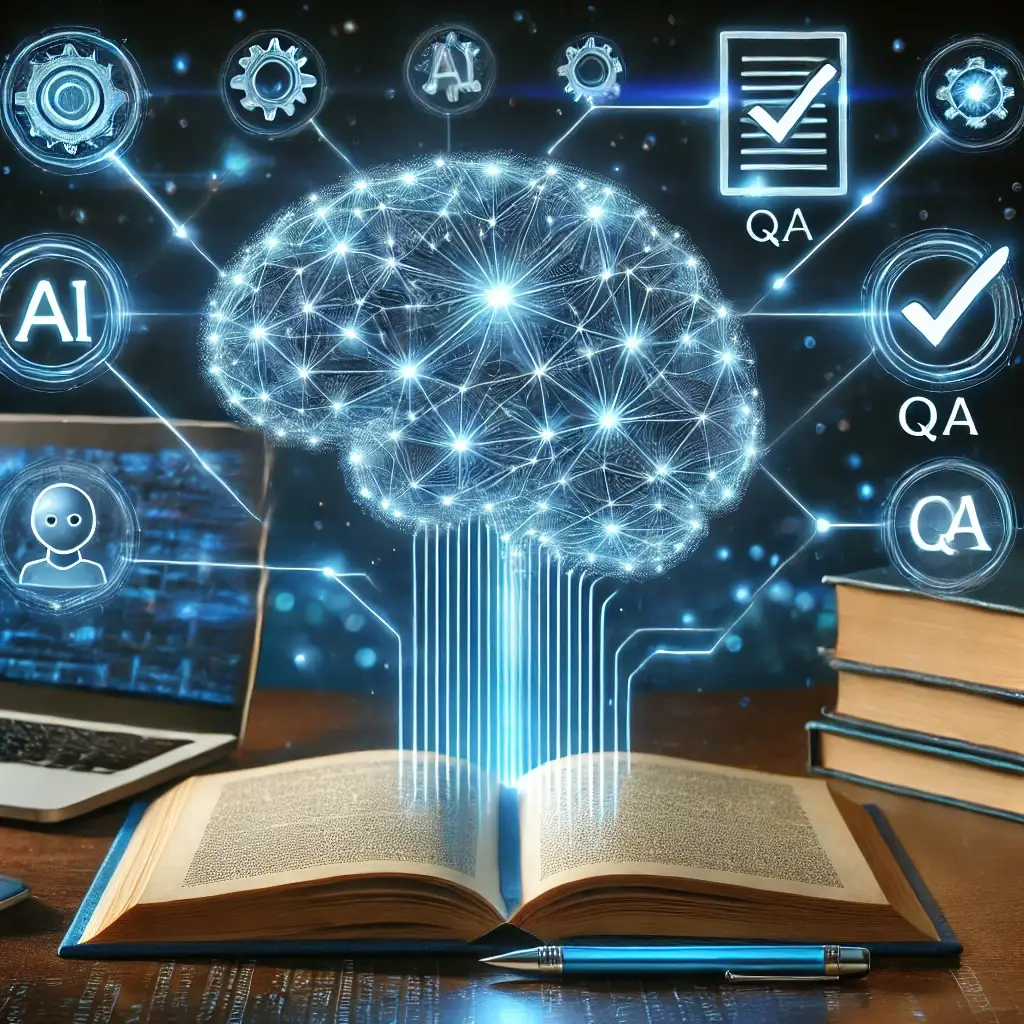Introduction
Artificial Intelligence (AI) is transforming education and quality assurance (QA) by enhancing efficiency, automating tasks, and improving decision-making. From AI-driven personalized learning to automated quality control systems, its applications are expanding rapidly.
However, AI also presents challenges, such as bias in decision-making, data privacy concerns, and the risk of over-reliance on automation. Striking a balance between leveraging AI’s benefits and addressing its risks is critical.
This article explores AI’s impact on education and QA, highlights potential risks, and explains how Curriculum Quality Assurance Solutions (CQAS) can help institutions and organizations implement AI responsibly.
AI in Education: Key Benefits and Innovations
AI is redefining traditional learning methods, offering tailored educational experiences and improving administrative efficiency. Here’s how:
1. Personalized Learning With AI-Powered Tools
AI-driven learning platforms analyse student performance and adapt lessons to match their pace and understanding. Tools like Carnegie Learning and Squirrel AI enable personalized learning experiences, improving student outcomes.
2. Automated Grading and Feedback Systems
AI-based assessment tools can grade assignments, quizzes, and even essays, ensuring faster and more accurate feedback while reducing educators’ workload.
3. AI-Enhanced Student Engagement
AI chatbots and virtual assistants provide instant responses to student inquiries. AI-powered gamification techniques make learning more interactive and engaging.
4. Data-Driven Educational Insights
AI analyses student performance metrics to identify strengths and weaknesses, allowing educators to intervene proactively and adjust teaching strategies.
Explore AI in education trends on EdTech Magazine
Risks of AI in Education: Challenges to Consider
Despite its benefits, AI poses several risks that educators and institutions must address:
1. Bias in AI-Driven Assessments
AI algorithms can unintentionally reinforce biases present in training data, leading to unfair grading and evaluation disparities.
2. Privacy and Data Security Concerns
AI collects vast amounts of student data, raising concerns about how securely it is stored and used. Unauthorized access or breaches could expose sensitive information.
3. Over-Reliance on AI
Excessive dependence on AI tools may reduce human oversight, leading to a lack of critical thinking and problem-solving skills among students.
4. The Digital Divide
AI-based learning requires technology access, which may not be equally available to all students, widening the educational gap.
AI in Quality Assurance: Transforming Standards in Education
AI is revolutionizing curriculum quality assurance (CQAS) by enhancing accuracy, streamlining evaluation processes, and ensuring compliance with educational standards.
1. Automated Curriculum Evaluation
AI-driven tools analyse course content for alignment with accreditation and regulatory requirements, ensuring compliance with educational standards.
2. Predictive Analytics for Curriculum Improvement
By analysing student performance data, AI can identify gaps in course content and suggest enhancements to improve learning outcomes.
3. AI-Powered Compliance Monitoring
AI ensures curriculum materials meet quality standards by tracking updates in educational policies and automatically suggesting adjustments.
4. Enhancing Institutional Decision-Making
AI-powered dashboards provide real-time insights into course effectiveness, student engagement, and faculty performance, helping institutions refine their curriculum strategies.
Risks of AI in QA: Potential Pitfalls
While AI improves curriculum quality assurance, it also presents challenges:
1. AI Errors in Curriculum Assessment
AI models may misinterpret content relevance or inaccurately assess curriculum quality, leading to flawed evaluations.
2. Ethical Concerns in AI Decision-Making
If not properly monitored, AI-based curriculum evaluations could reinforce biases or exclude diverse perspectives from educational content.
3. Data Privacy and Security Risks
Educational institutions must ensure that AI-powered curriculum evaluation systems protect sensitive student and faculty data from breaches.
4. Need for Human Oversight
AI should support, not replace, human judgment. Curriculum evaluations must include expert review to validate AI-generated insights.
How CQAS Helps Address AI’s Challenges
Curriculum Quality Assurance Solutions (CQAS) ensures that AI is applied responsibly in education by maintaining ethical standards, enhancing security, and integrating human oversight.
1. Ensuring Ethical AI in Education
CQAS frameworks help institutions implement AI-driven learning tools while ensuring fairness, inclusivity, and unbiased decision-making.
2. Strengthening Data Privacy and Security
CQAS promotes best practices for data protection, ensuring AI-powered systems adhere to privacy laws and security protocols.
3. Providing Oversight in AI-Driven Curriculum Evaluations
CQAS establishes human-AI collaboration strategies, ensuring that AI insights are reviewed and validated by educators.
4. Facilitating AI-Enhanced Quality Assurance
CQAS integrates AI with traditional quality assurance methods to create a balanced, data-driven approach to curriculum improvement.
The Future of AI in Education and QA
As AI evolves, it will continue shaping education and quality assurance in the following ways:
1. Stronger AI Regulations and Ethical Guidelines
Governments and institutions are working on stricter regulations to ensure AI in education is used responsibly and fairly.
2. Improved AI-Powered Learning Models
Future AI models will offer even more personalized and adaptive learning experiences, helping bridge educational gaps.
3. Continuous AI Monitoring and Human Collaboration
AI’s role in education and QA will require ongoing monitoring to ensure it remains ethical, accurate, and beneficial to all learners.
Conclusion: Striking a Balance for AI Success
AI is transforming education and quality assurance by automating processes, personalizing learning, and improving decision-making. However, risks such as bias, security concerns, and ethical dilemmas must be managed effectively.
By implementing Curriculum Quality Assurance Solutions (CQAS), educational institutions can ensure AI is used responsibly, maintaining high-quality standards while mitigating risks. With the right balance of AI innovation and human oversight, the future of education and QA will be both efficient and ethical.

